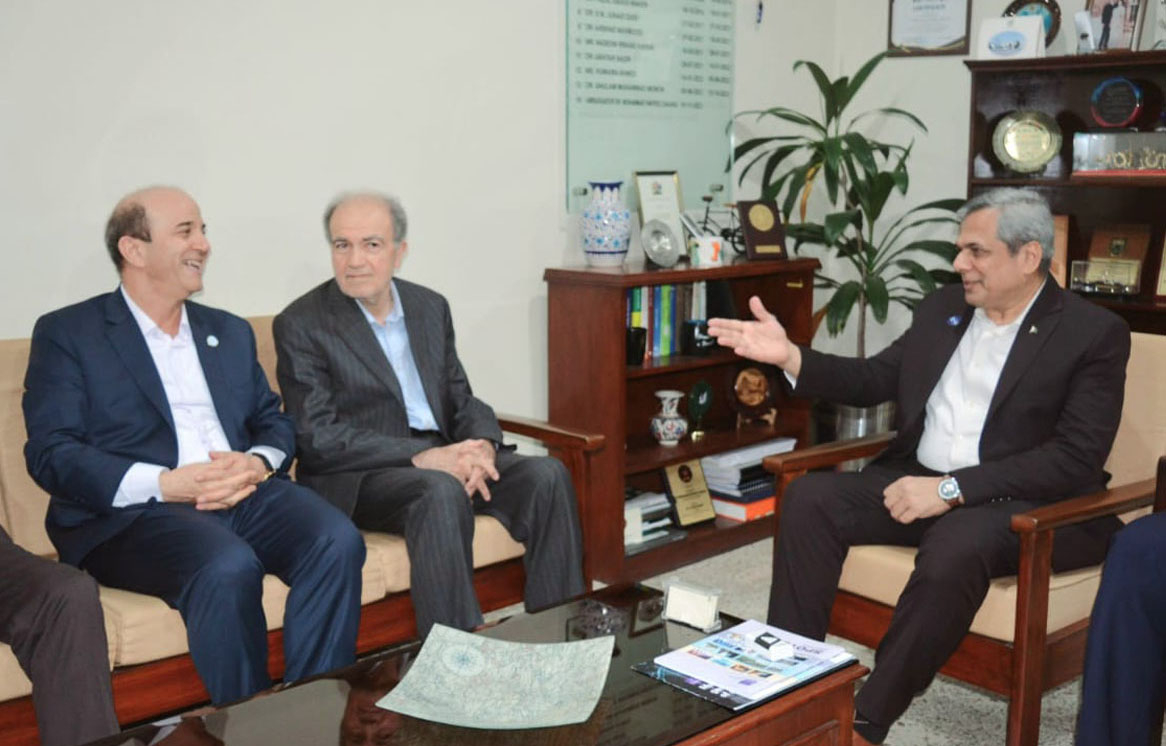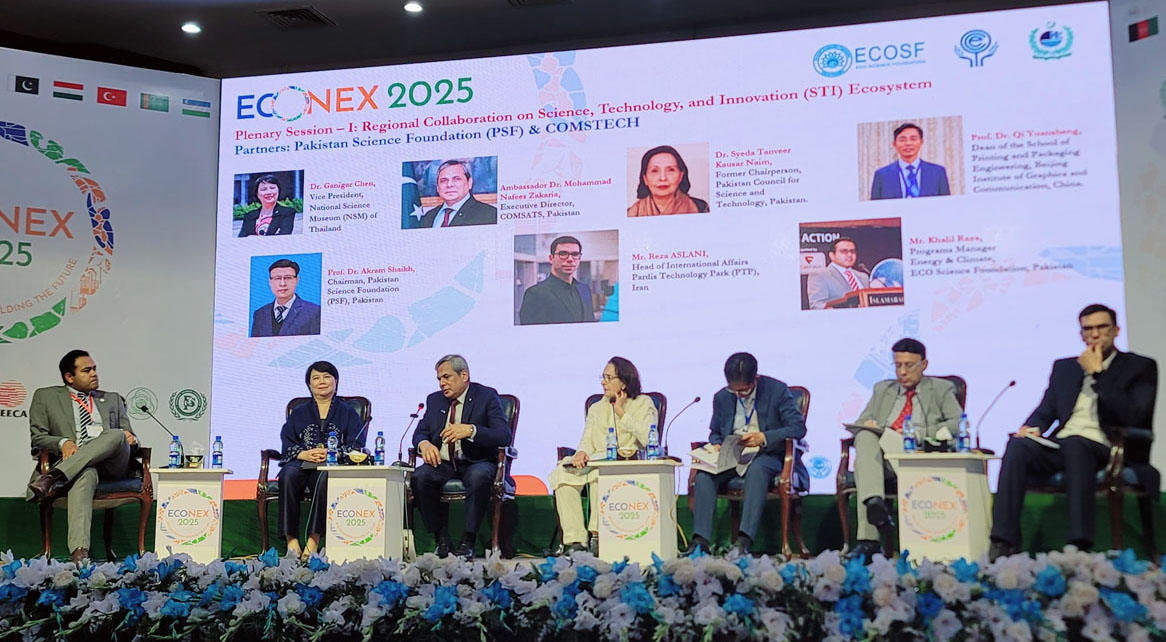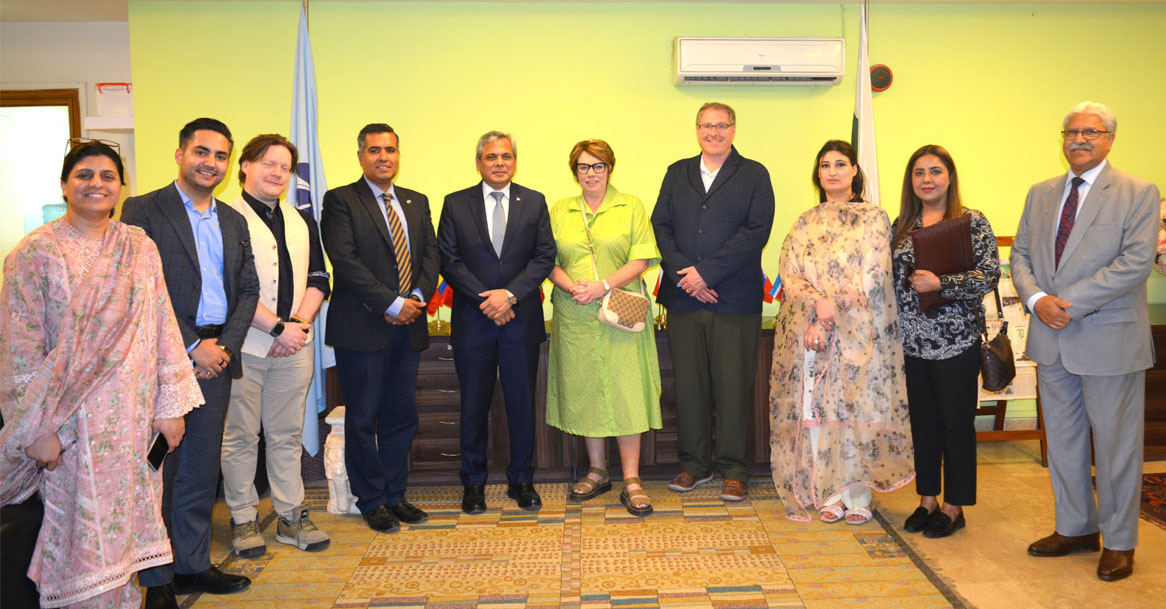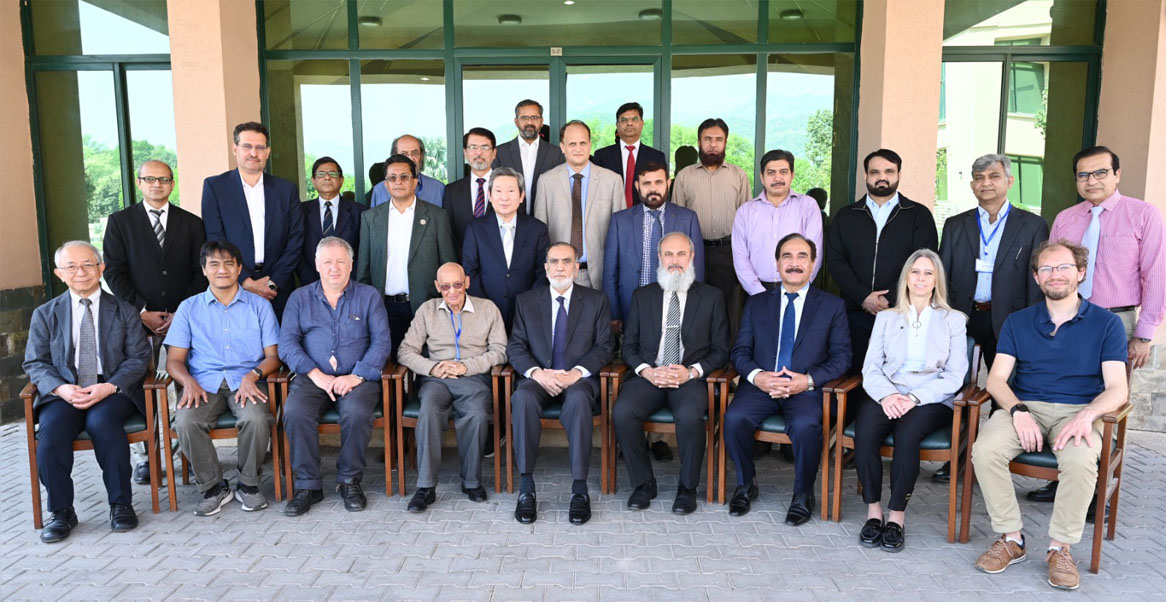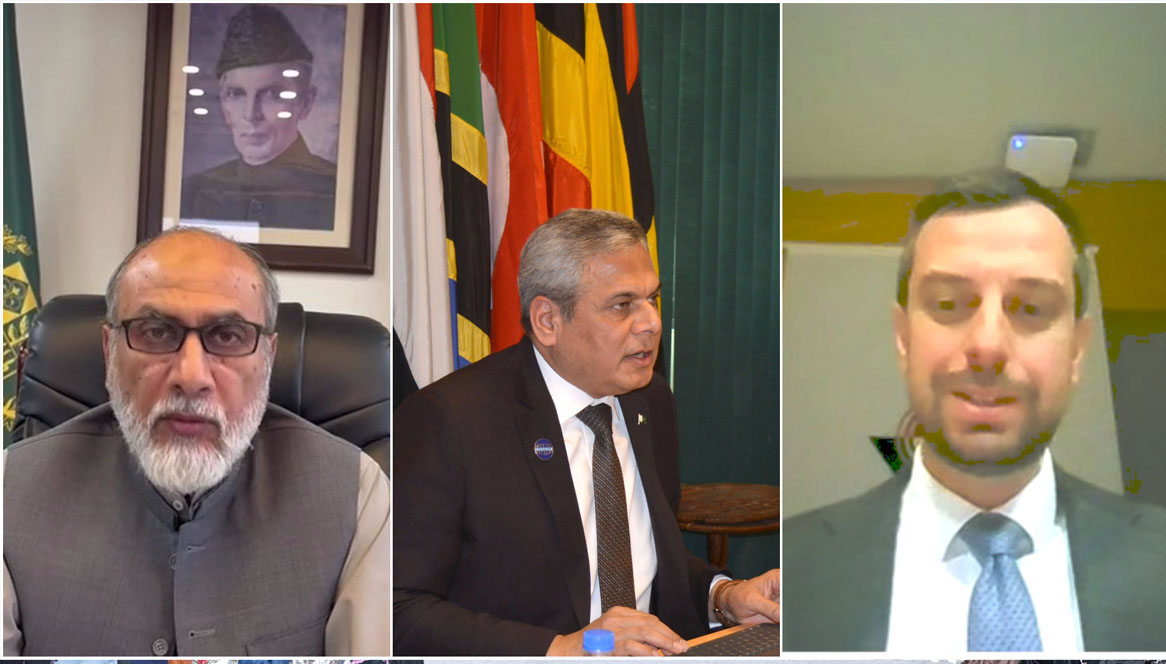14th November 2024. On Day Four of the ongoing 29th Conference of Parties (COP29) in Baku, Azerbaijan, focusing on Finance, Investment, and Trade, the Commission on Science and Technology for Sustainable Development in the South (COMSATS) held its second sideline event, titled “Global Climate Finance Mechanisms: Assessing Equity and Effectiveness”.
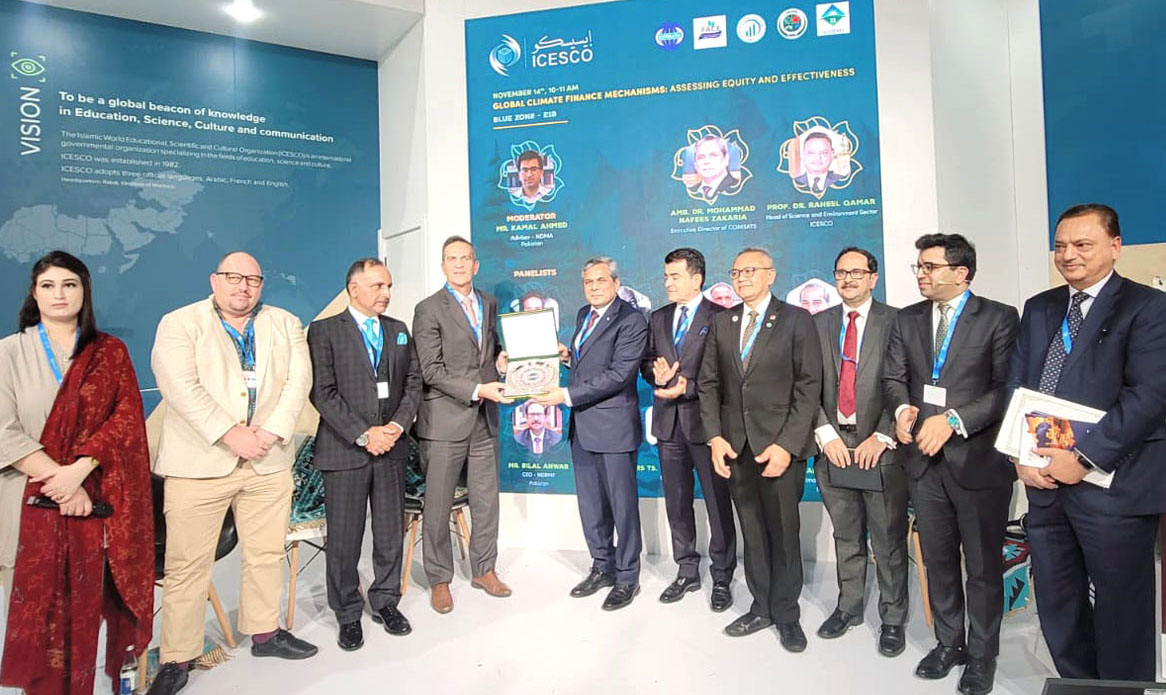
The event was organized in collaboration with the Islamic World Educational, Scientific and Cultural Organization (ICESCO), the National Disaster Management Authority (NDMA), the National Disaster Risk Management Fund (NDRMF), the Food Security and Agriculture Centre of Excellence (FACE), and the Climate Resourcing Coordination Center (CRCC) from the ICESCO Pavilion in Baku Stadium.
In his remarks, Ambassador Zakaria simplifying the financing mechanisms, address monopolistic tendencies, enable regional developing and under developed states such as small island developing states and least developed countries to have easier access to the climate adaptation funds. He emphasized that developing countries face hurdles such as limited bankable financial infrastructure and insufficient capacity for the efficient flow of climate finance.
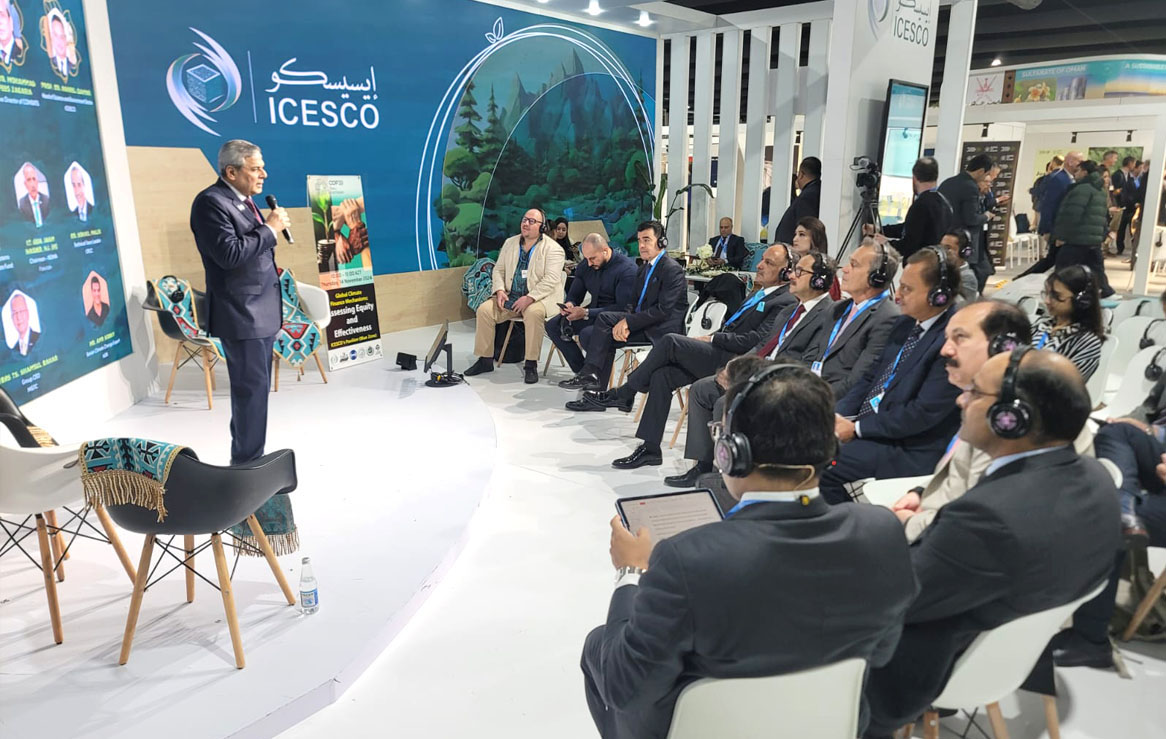
The panelists for this high-priority discussion included Mr. Javier Manzanares, CEO of Allen Manza Inc.; Mr. Ben Vickers, Senior Specialist at the Green Climate Fund; Mr. Amr Sobhy, Senior Climate Change Expert at IsDB; YBRS TS. Shamsul Bahar, Group CEO of MGTC Malaysia; Lt. Gen. Inam Haider Malik, Chairman of NDMA; Mr. Bilal Anwar, CEO of NDRMF; and Dr. Sohail Malik, Technical Team Leader at CRCC.
The discussion aimed to identify key elements for developing robust domestic regulatory frameworks to ensure the stability, integrity, and alignment of climate finance with the specific needs and policies of individual countries. Critical challenges, such as regulatory gaps, capacity-building needs, and ensuring transparency in climate finance mechanisms, were also addressed.
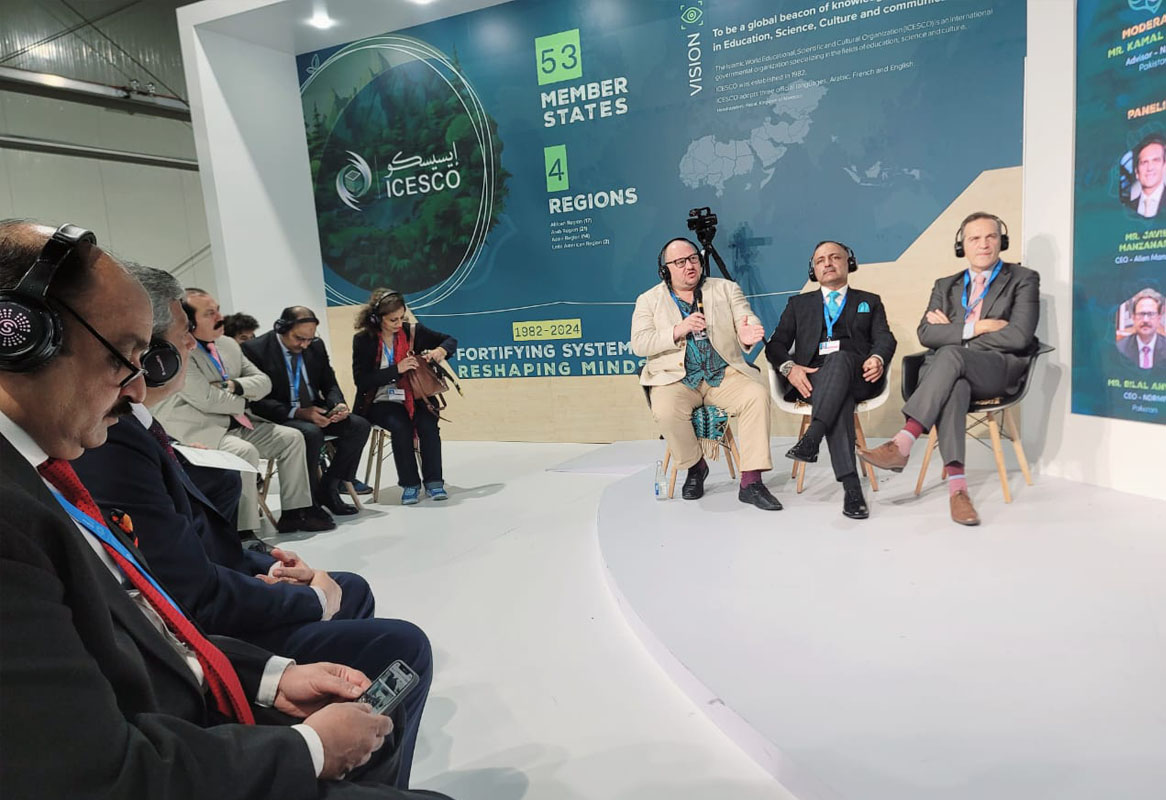
Additionally, COMSATS collaborated with ICESCO for another panel discussion on “Optimizing Small-Scale Renewable Energy Projects and Navigating their Finance,” held from the ICESCO Pavilion at Baku Stadium. During this session, the Executive Director of COMSATS delivered an address on financing mechanisms for large-scale renewable energy projects.
In his inaugural remarks, Ambassador Zakaria shared his insights on the challenges posed by non-renewable energy and emphasized the urgent need to adopt clean and green energy solutions across domestic, commercial, and transportation sectors. He informed the participants about COMSATS’ initiatives in this regard, including a collaborative effort to develop indigenous technology for converting internal combustion engine (ICE) vehicles into electric vehicles (EVs).
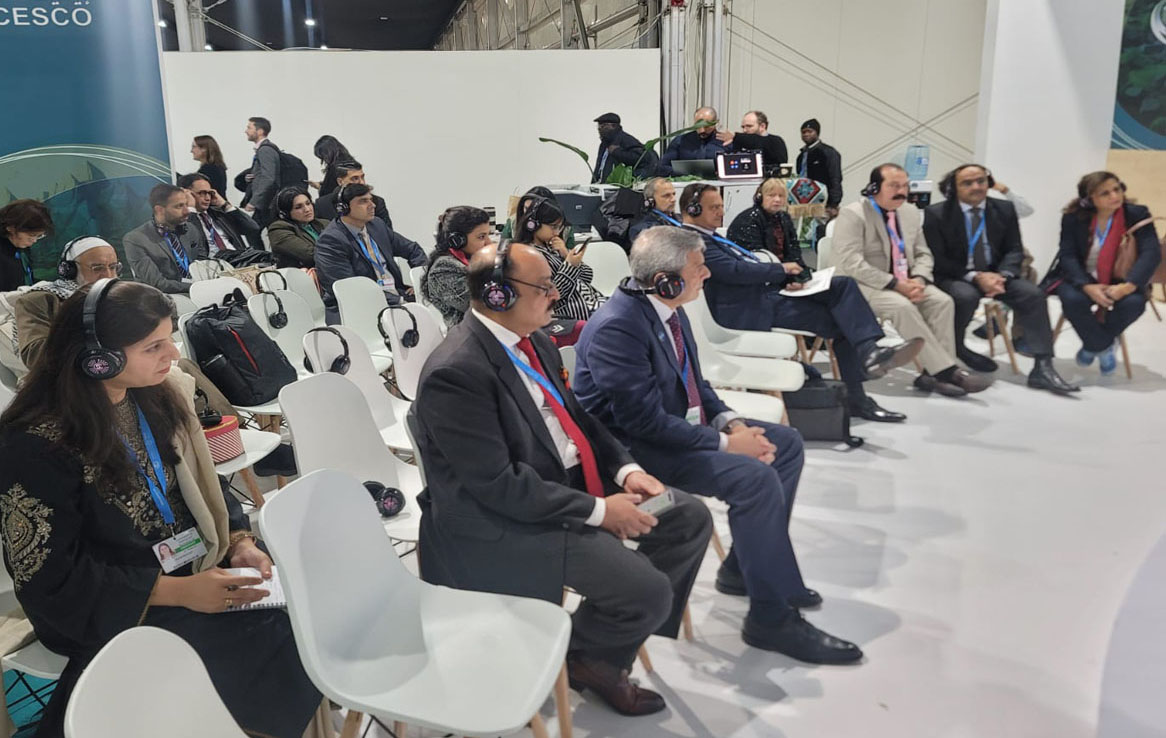
Both events were closely aligned with the agenda and theme of Day Four, focusing on Finance, Investments, and Trade to promote Climate Action and achieve sustainable development, thereby paving the way for a resilient and prosperous future.

